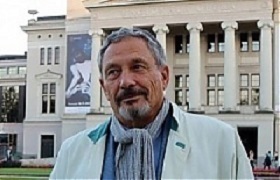Analytics, EU – Baltic States, Latvia, Modern EU
International Internet Magazine. Baltic States news & analytics
Saturday, 20.12.2025, 07:40
Goals and commitments for the EU’s future: reaching for the stars…
 Print version
Print version |
|---|
The summit agenda follows the initiatives adopted as late as in June 2014 by the European Council concerning five priority areas: jobs, growth and competitiveness; empowering and protecting citizens; energy and climate policies; freedom, security and justice; and the EU as a strong global actor. More in:
https://www.consilium.europa.eu/en/meetings/european-council/2019/05/09/
However, challenging events which took place during last
years provided for some changes in the agenda, including sustainability,
circular economy and consumption patterns.
EU leaders’ summit which was meant to plan the block’s
future after Brexit, will turn into a much broader discussion on the EU’s
strategic growth by 2024; the summit draft’s declaration was outlined by the
European Council President in the beginning of May. Besides, off the summit’s
official program, the leaders are discussing candidates for top EU positions
after European Parliament elections. This November is the last month of the
present Commission; it wants to pave the way to its followers with the
strategic guidelines.
The summits’ draft declaration includes unanimously agreed
“10 commitments,” which are a mixture of “good intentions, generic points and
some aspirations that clash with the everyday EU’s realities”, commented
Barigazzi J. in Politico on the draft
text.
https://www.politico.eu/article/2019-05-04-189017225 and more on 5 goals and 10 priorities in:
http://www.baltic-course.com/eng/editors_note/?doc=20493
With the rise of challenger parties, the existing blocks and
the future in the new Parliament may need to forge new alliances to obtain
needed majority.
EU’s future as global leader in numerous issues
The summit declaration includes both vague and ambitious
commitments: like those aimed at secure EU’s borders (by investing in soft and
hard power) and “speaking with one voice” to “delivering where it matters most”
and “bringing the Union closer to citizens”, as well to “ensuring fair and
effective taxation” and “fair competition”, to name a few.
Politico comments
that it is impossible to reach these and other goals: “either the leaders plan
to lie, or else they plan to repudiate the last decade of austere bailout
policies”. The “reality show” will start within last months in 2019 when the EU
leaders will finalise the next long-term EU budget; already at present it is
evident that most of the leaders refuse signing in for the budget increase in
its modern version.
Turning ten commitments into reality would require major
change in the EU: for example, issue like solidarity became highly contentious
during and after 2015 migration crisis when countries like Hungary and Poland refused to take in refugees under
an EU-wide relocation scheme.
The leaders also committed to "continue to protect our
way of life, democracy and the rule of law” and to "uphold our shared
values and principles." However, the EU institutions have started
disciplinary proceedings against both Hungary and Poland, accusing them of
putting those values at risk. More in: Barigazzi J. EU leaders to agree on 10 commitments at summit:
draft text, in: https://www.politico.eu/article/2019-05-04-189017225
EU leaders’ opinion on burning issues
As to the EU’s security issues: German conservative Manfred
Weber backed Chancellor Angela Merkel’s ambition for a permanent multinational
armed force. But socialist candidate Frans Timmermans insisted that a European
army was not coming any time soon, arguing Europe would be better off focusing
on economic cooperation.
Liberals Guy Verhofstadt argued that the EU needs
far-reaching reforms; he argued that the EU presently doesn't actually exist -
it is still a confederation of nation states with decisions made by qualified
majority and unanimity. But, he added the EU was always acting too little, too
late when something is happening, for example the last financial crisis. There
is a time span of the next five years to really change this character of the EU
and make it a real one.
The Green's Ska Keller said the focus should be on the needs
of future generations: “Let's go to vote taking into account the future of the
children, of the grandchildren, of the younger people who can't go to vote. And
they gave us a very clear signal: they go to the streets in thousands and
thousands in Rome, all over Italy, all over Europe, all over the world, because
they are saying they also want to have a planet to live in."
More in the Euronews: https://www.euronews.com/2019/05/03.








 «The Baltic Course» Is Sold and Stays in Business!
«The Baltic Course» Is Sold and Stays in Business!

